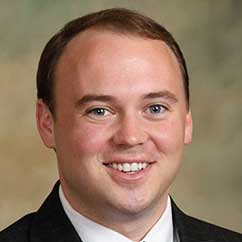Part 3 | Healthcare CEO/Executives
The Future of Healthcare Technology Roundtable Series assembles insights from five important cohorts: Innovators, Physicians, Executives, Payors and Policy Makers, to discuss emerging trends and opportunities in today’s healthcare environment. We hope to enlighten, inform, and provide thought leadership through this five-part written forum.

Luke West – CEO, Relias Healthcare
Please give a short description of your company/role within the company?
Serving as Chief Executive Officer for Relias Healthcare, I oversee the daily operations of the multistate organization along with leading our strategic growth.
In your opinion, what are the top 3 opportunities for technology to affect healthcare efficiency over the next five years?
Telehealth will continue to evolve to a place where we look back and wonder how we practiced without it. I believe in 15 years we will view telehealth in a similar way that we now think of our work environments before the internet. We have a long way to go, both from a regulatory standpoint as well as utilization, adoption, and connectivity.
EMR’s can make or break the work environment for our clinicians. I think we have all come to accept that EMR’s are necessary and can be extremely helpful for our clinicians, but many platforms have not fully embraced the opportunity to be a “tool kit” for the frontline clinician. The potential is endless in ways to improve efficiency and we are only seeing a glimpse of their potential.
Facility Patient Logistics will continue to evolve with the help of technology and allow hospitals to increase efficiency and manage resources. We will see our hospitals utilizing forecasting tools for capacity and resource management, as well as allowing seamless transfer to higher levels of care through Patient Logistic Centers. As we see health system acquisitions rise we will also see the use of patient logistic technology rise as facilities work to bridge gaps between sister facilities.
How can technology innovation impact long term sustainable change in healthcare from an executive point of view?
I have seen during COVID-19 many positive operational adjustments that have been made out of necessity. Being forced to change can, and has been, a good thing for many health systems and I think we will see many facilities never returning to pre-covid daily operations. We will see telehealth re-shape the way we care for patients and allow our facilities to reduce cost and scale quickly to respond to volume/ acuity needs. This will save our rural healthcare facilities and keep high quality care in underserved areas.
What is the biggest roadblock physicians/healthcare systems face in bringing new health tech innovation to the market?
Some of the regulatory scale-backs during the COVID-19 pandemic have been a breath of fresh air. I think that red tape with payors and individual state requirements do not allow physicians/healthcare systems the ability to standardize care delivery models.
What trends do you see shaping healthcare from a business model perspective: pertaining to healthcare leadership?
As a healthcare leader one has to be innovative now more than ever. The trends of today will be the standard in healthcare operations tomorrow. Technology will continue to shape the way people seek healthcare, brick and mortar facilities will continue to become smaller and smaller, and payors will be forced through legislation to adapt to embrace change. I think you will see physician executives becoming more than a face in a senior leadership team, but rather a key decision maker and provider influencer in an organization.

David Sylvan – President, UH Ventures
Please give a short description of your company/role within the company?
I’m privileged to lead University Hospitals’ innovation and commercialization division, UH Ventures. This group features a portfolio of various core operations, industry partnerships, technology commercialization and business development initiatives. These activities are driven by a diverse and experienced group of professionals, many of whom were purposefully selected from outside of healthcare. The UH Ventures team is responsible for the identification and positioning of internally sourced innovations, with a view to appropriately harvest any economic upside through technology transfer or venture creation. UH Ventures is also tasked with the intake and diligence of early stage opportunities, and the alignment of these with the unmet needs of our stakeholders, whether they be clinical or administrative. We have the opportunity to deploy investment capital where this meets our well-defined portfolio criteria, and underpinning all of our activities are the core tenets of human centered design – most notably evident in our programming activities aimed at influencing our internal culture of innovation.
In your opinion, what are the top 3 opportunities for technology to affect healthcare efficiency over the next five years?
If we’ve firmly established anything during this crisis period, it’s reinforced the need to effectively and efficiently digitally tether patients and providers. It’s upended any health system’s bricks and mortar strategies, and those systems that aren’t able to rapidly lean into tele-health and remote monitoring, will find they’re stuck with unsustainable business models and an eroding patient population due to competition. This remote data acquisition needs to occur passively and almost continuously in order to reveal actionable insights for care teams.
Second, we need to address the process and overall inefficiency that can sometimes burden healthcare in general – any technologies that will materially improve efficiency will also take on more prominence. So, think for example of streamlining provider-patient communications (both in- and out-patient settings), or effortlessly curating care transitions. The examples and opportunities are endless.
Third, I would add that all of the above needs to be underpinned by AI & predictive engines that will ease and supplement the physician or clinician’s decision making, and it’s equally critical that these technologies don’t function independently from the other solutions in the stack – interoperability is crucial (that’s a fourth….).
How can technology innovation impact long term sustainable change in healthcare from an executive point of view?
Healthcare leaders need to wring inefficiencies out of their processes in order to survive and thrive. As an industry, we continue to struggle with legacy business models or redundancy. Remember, we still use paper and fax machines in many areas. Healthcare leaders also need to embrace and invest into a system-wide data strategy. Those who succeed will differentiate from competitors, and also enable a patient and provider experience, informed by data, that meets the demands of this new era. The future healthcare paradigm will also require a robust healthy-at-home strategy, which will be driven by technology enablement.
What is the biggest roadblock physicians/healthcare systems face in bringing new health tech innovation to the market?
There are many factors, but here are a couple: The traditional “at the speed of healthcare” is debilitating to most early stage companies from a cash-burn perspective. We have learned throughout this crisis that the traditional 6-month, 9-month or even year that it traditionally took to onboard a proof-of-concept, pilot or trial, was a further manifestation of the process inefficiencies mentioned previously. There are reasonable and repeatable ways to streamline this process – perhaps not down to the days our industry has achieved recently, but formalizing this new-found agility will substantially impact the adoption of new technologies.
What trends do you see shaping healthcare from a business model perspective: pertaining to healthcare leadership?
Healthcare leaders will need to continue to hone their comfort with a set of business norms that no longer place primary reliance on in-patient encounters. As we continue to transition to a remote, digitally tethered setting, it won’t just be the leaders who will have to become adept at these emerging forms of care delivery, or how these re-frame and re-establish the patient’s and provider’s experiences. The later will certainly have to evolve as well.
Non-traditional competition will also have to be acknowledged and healthcare leaders will need to carefully weigh the costs and benefits of being potentially burdened with non-core assets or business verticals that are no longer critical to the system’s operations. We will probably see an uptick in the monetization of these non-core operating units via disposition or joint venturing etc., and the reinvestment of these proceeds into the likes of a well-defined data strategy, as one example.
The Future of Healthcare Technology Roundtable Series is produced by Hyr Medical and Axuall, both located in Cleveland, Ohio.
